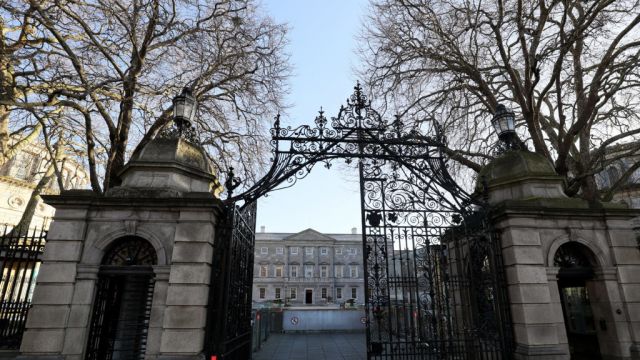More than four in 10 Irish people are dissatisfied with the way democracy works in the State, according to the findings of a major new EU-wide survey.
The report, carried out on behalf of the European Commission, highlights above-average levels of dissatisfaction among Irish citizens with various aspects of democracy, including access to accurate information, expressing political opinions and engaging with politicians.
It also revealed that Irish people perceive false and/or misleading information circulating both online and offline as the most serious threat to democracy.
The Eurobarometer poll also highlighted how 40 per cent of Irish respondents said they believed they had been personally exposed frequently to disinformation and fake news over the previous week – the eighth-highest rate in the EU, where the average was 35 per cent.
A further 34 per cent of Irish adults said they were sometimes exposed to misleading information over the same time period.
Just 18 per cent of Irish people claimed they were rarely or never exposed to disinformation and fake news.
The survey on the attitudes of EU citizens to democracy revealed 42 per cent of Irish adults expressed dissatisfaction with democracy in Ireland, including 19 per cent who were “not at all satisfied” with how it works.
While 54 per cent of Irish respondents were satisfied with how democracy works in the State, it was only the ninth-highest rate among the 27 EU member states.
Two-thirds of people from Ireland (67 per cent) agreed that they could access accurate information from multiple media sources about important national topics in their country.
However, it was the eighth-lowest level of satisfaction with access to accurate information across the 27 EU member states, and below the EU average of 72 per cent.
Similarly, just under two-thirds of Irish people (64 per cent) said they could express their political opinion without fearing negative consequences, giving us the ninth-lowest rate in the EU, which had a comparable average of 68 per cent.
Concern
Asked about the ability to engage with politicians, 58 per cent of Irish respondents agreed they could debate issues with candidates and political parties – the same level as the bloc's average but still the eighth-lowest rate within the EU.
The survey of 25,600 citizens across the EU, including over 1,000 in Ireland, found women, people under 40 and rural dwellers, as well as those with low levels of education, were more likely to be dissatisfied with democracy in their country.
Asked about the most serious threat to democracy, 39 per cent of Irish respondents identified false and misleading information as their biggest concern, followed by growing distrust and scepticism towards democratic institutions (31 per cent) and a lack of knowledge among voters about the functioning of democratic processes (26 per cent).
Questioned about who was best at defending democracy, Irish people said they would have the most confidence in their fellow citizens (65 per cent), with a majority also supportive of EU institutions, civil society organisations and the court system.
However, a minority expressed confidence in the media (41 per cent) and political parties and politicians (38 per cent) to defend democracy, although the rates were above the EU average.
Online social networks were identified as the main source of disinformation and fake news by 69 per cent of Irish respondents.
Television was named as a source of misleading information by 28 per cent, followed by online newspapers (24 per cent) and messaging apps (20 per cent).
More than half of Irish people (52 per cent) said online platforms should do more to prevent the spread of false and misleading information, while only 6 per cent claimed they should not be held responsible for reducing the spread of it.
Asked about ways to fight disinformation, a majority of Irish respondents (52 per cent) called for people using online platforms to be prompted to verify information before sharing it with others.
Only 15 per cent felt internet users were sufficiently equipped to identify on their own the difference between what was true and false.
Worryingly, a majority of respondents were unhappy with democracy in their country in 17 EU member states.
In 11 countries, more than a quarter of respondents claimed they were “very dissatisfied” with the way democracy worked. They included France, Poland and Greece, while Hungary had the highest figure of any EU country at 49 per cent.
The European Commission said democracy in the EU and its member states has been facing a number of challenges in recent years, including rising extremism and polarisation, perceived distancing between citizens and their elected representatives and the spread of disinformation.
It claimed its European Democracy Action Plan (EDAP) is designed to empower citizens and build more resilient democracies across the EU by promoting free and fair elections, strengthening media freedom and pluralism and countering disinformation.
European Commission president Ursula von der Leyen announced a package of reform in 2022 that would deepen the actions under EDAP as well as “bring covert foreign influence and shady funding to light”.







